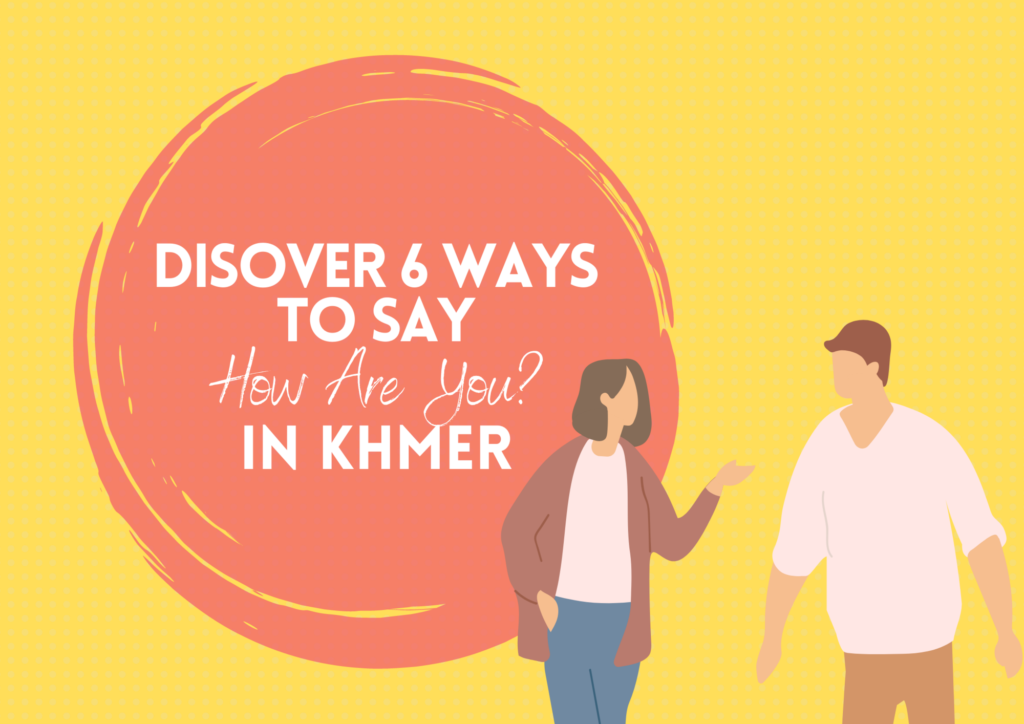Asking “How are you?” will somehow make the other person feel cared for and loved. It is a great way to let other people feel that you remember them. Checking someone in can be done in various ways. Thanks to the power of modern technology, you can reach out to someone even overseas. The question “How are you” is also one of the most common conversation starters aside from greetings. This will be really helpful when traveling to different countries like Cambodia. In this blog, you will learn how to say How are you in Khmer.
How To Say ‘How Are You?’ In Khmer
Cambodians are known to be warm-hearted and polite people. Caring for others has always been part of their culture. You can meet a lot of people while walking to the street of big cities in Cambodia like Siem Reap. That is why do not be surprised if a Cambodian asked you “How are you?” even if you do not know them. Aside from ‘Hello’ ‘How are you?’ is a way of greeting someone in Khmer. Here are 7 ways to ask someone How are you in Khmer:
1. Neak-Sok-Sabay-Te? (អ្នកសុខសប្បាយទេ?)
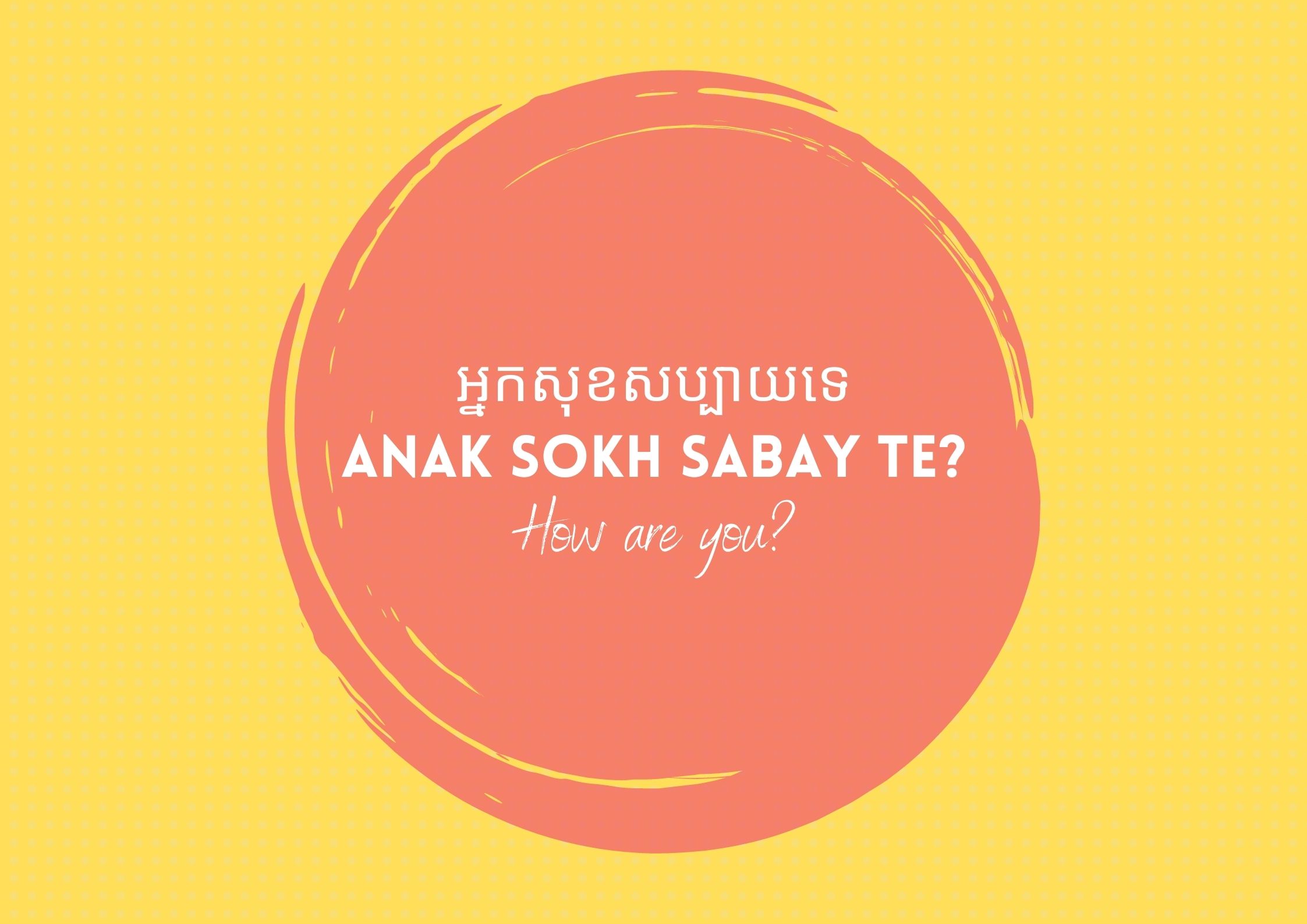
This is the common way to say How are you in Khmer. You can use it informal setting. You can do sampeah while saying this to show respect to the other person regardless if you are younger or older. Sampeah is done by putting your hands together and lowering your head. It is also applicable for both males and females. Do not forget to smile while saying this. Of course, a smile can brighten up the mood.
2. Sok-Sabay? (សុខសប្បាយ?)
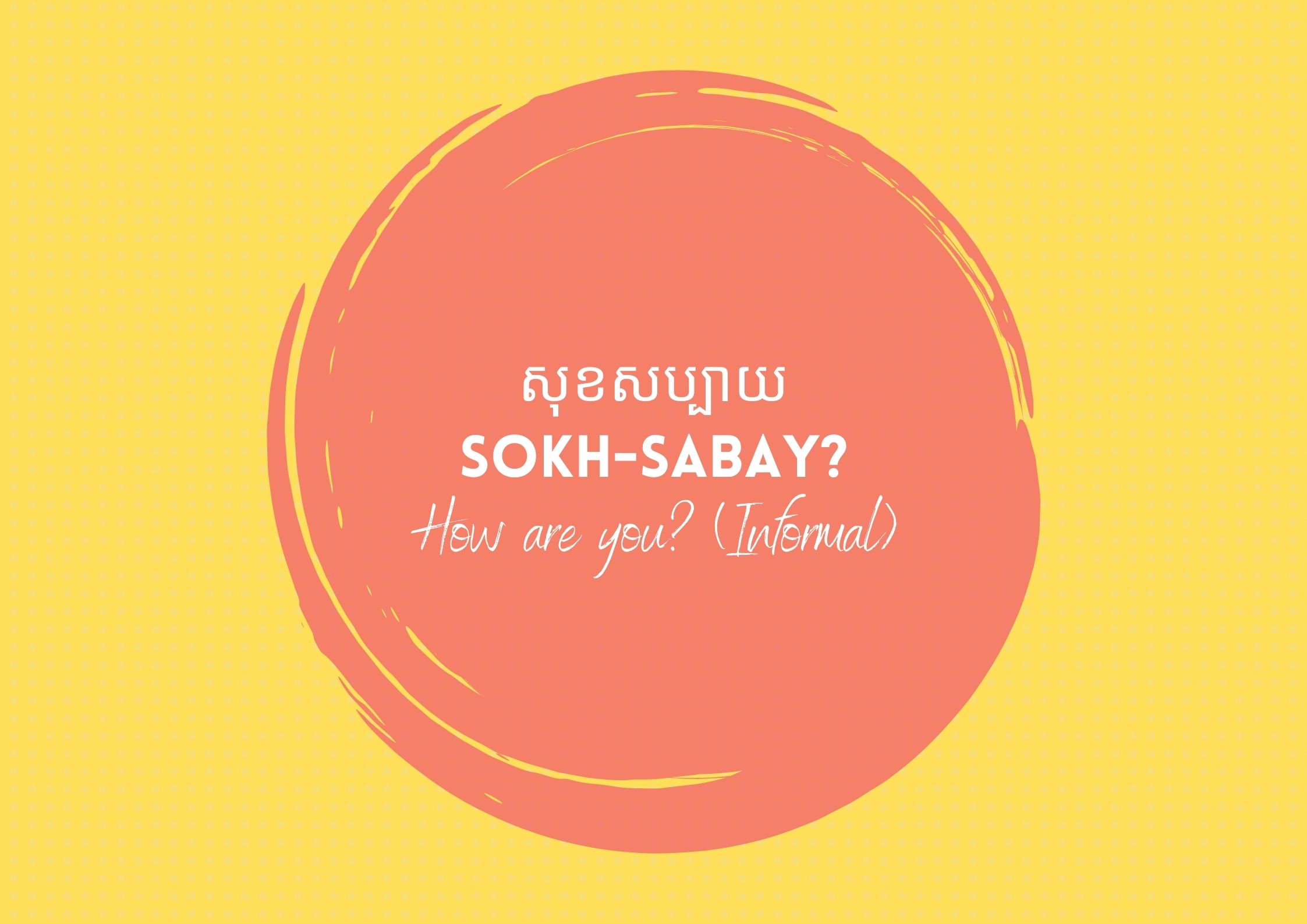
This Khmer greeting literally means ‘safe and happy’ in English but it is also used to say How are you in Khmer. This more informal than the first one. But if you have just met someone, please use Anak Sokh Sabay Te? (អ្នកសុខសប្បាយទេ) to sound more polite.
3. Taeu-Neak-Thveu-Yangmech (តើអ្នកធ្វើយ៉ាងម៉េច?)
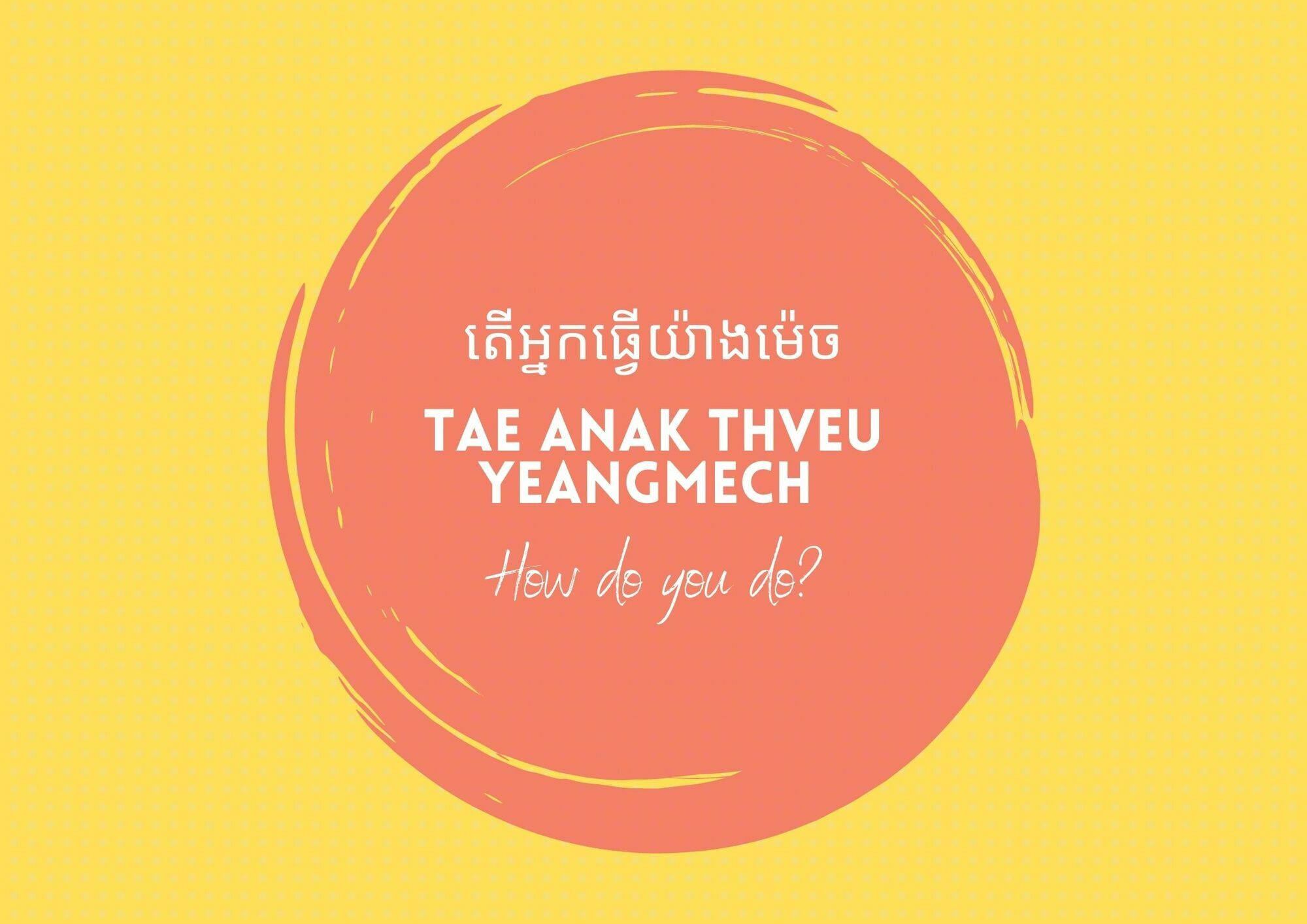
You can also ask someone How are you in Khmer in different ways. This phrase means “How do you do?” in English. Asking someone how they are doing might open to the different interesting topics about their current life situation.
4. Mean Avei Thmei?( មានអ្វីថ្មី?)
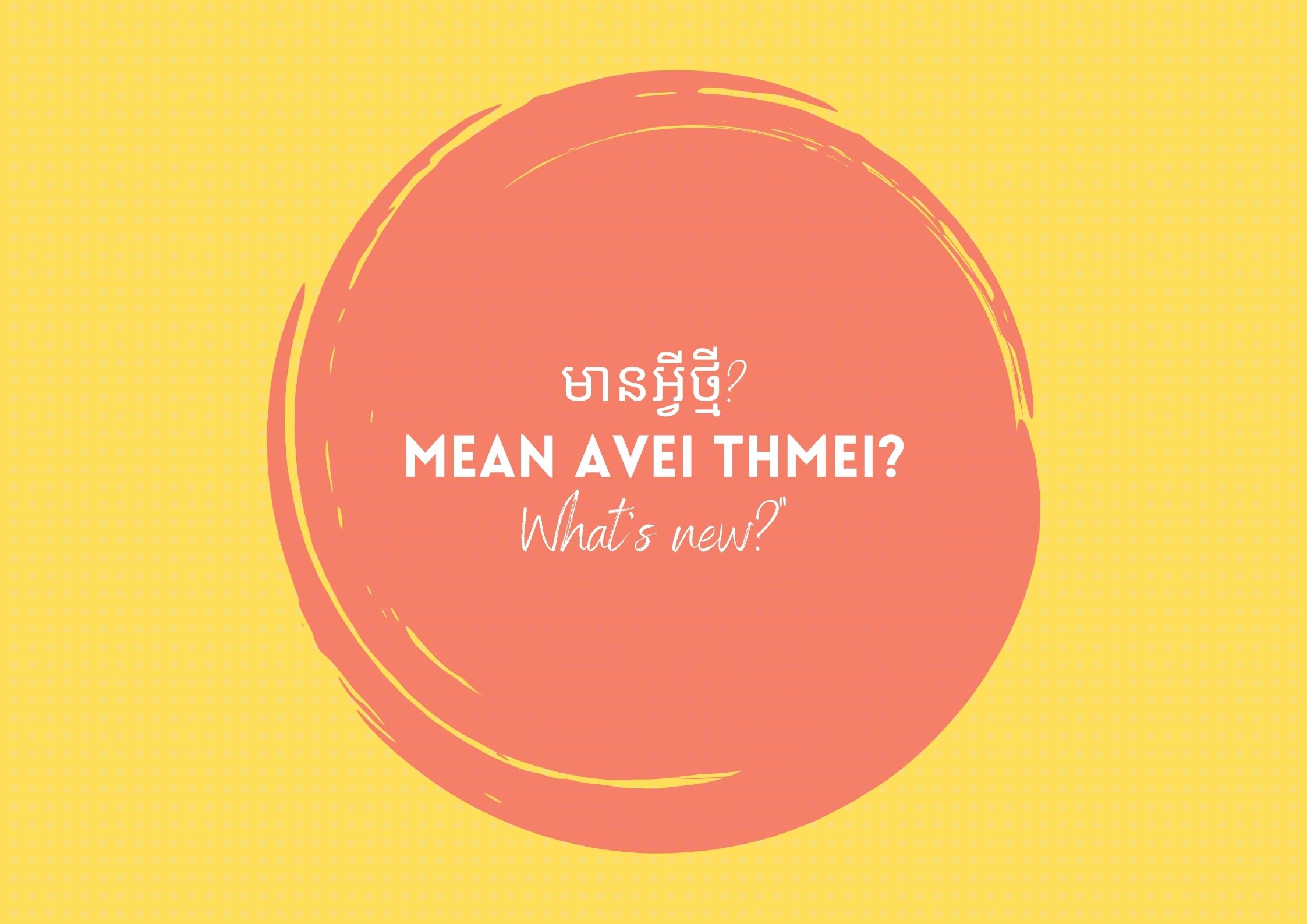
For people whom you meet a lot or very close with you, you can say mean Avei thmei? ( មានអ្វីថ្មី?). This is also more informal than the first one. This means “What’s new?” in English. Some people have new things in life that are worth sharing. Having someone that is happy with their achievements, no matter how big or small it is, feels wonderful.
5. Taeu-Avei-Avei-Damnaeuka-L’a-Te? (តើអ្វីៗដំណើរការល្អទេ?)
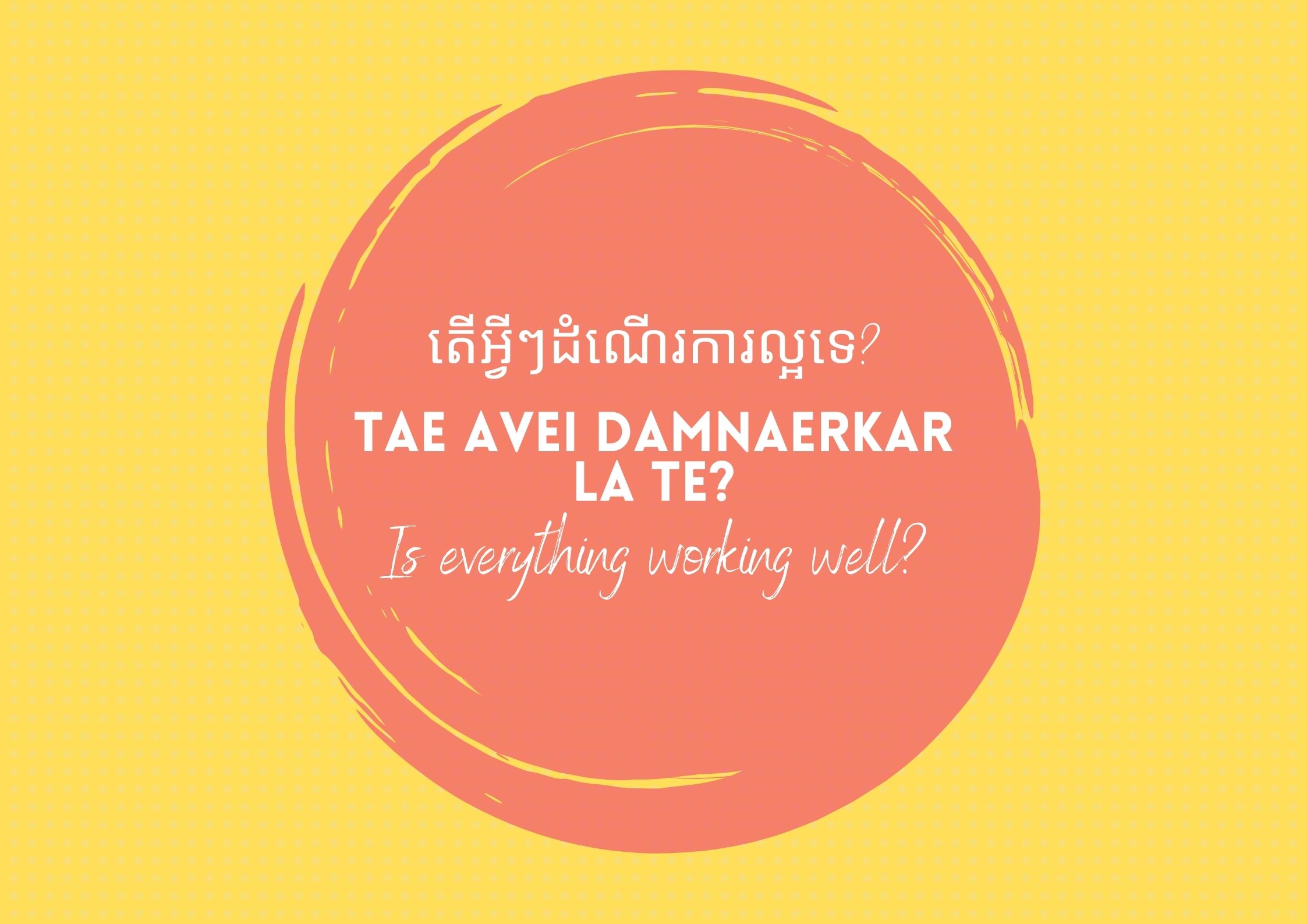
Another way of asking about someone’s situation is knowing what are they doing. It is a nice conversation piece. If you would like to know how they are doing, say Tae avei damnaerkar la te? (តើអ្វីៗដំណើរការល្អទេ?) this phrase means “Is everything working well?” in English.
6. Taeu-Neak-Mean-Aram-Tha-Min-Ei-Te? (តើអ្នកមានអារម្មណ៍ថាមិនអីទេ?)
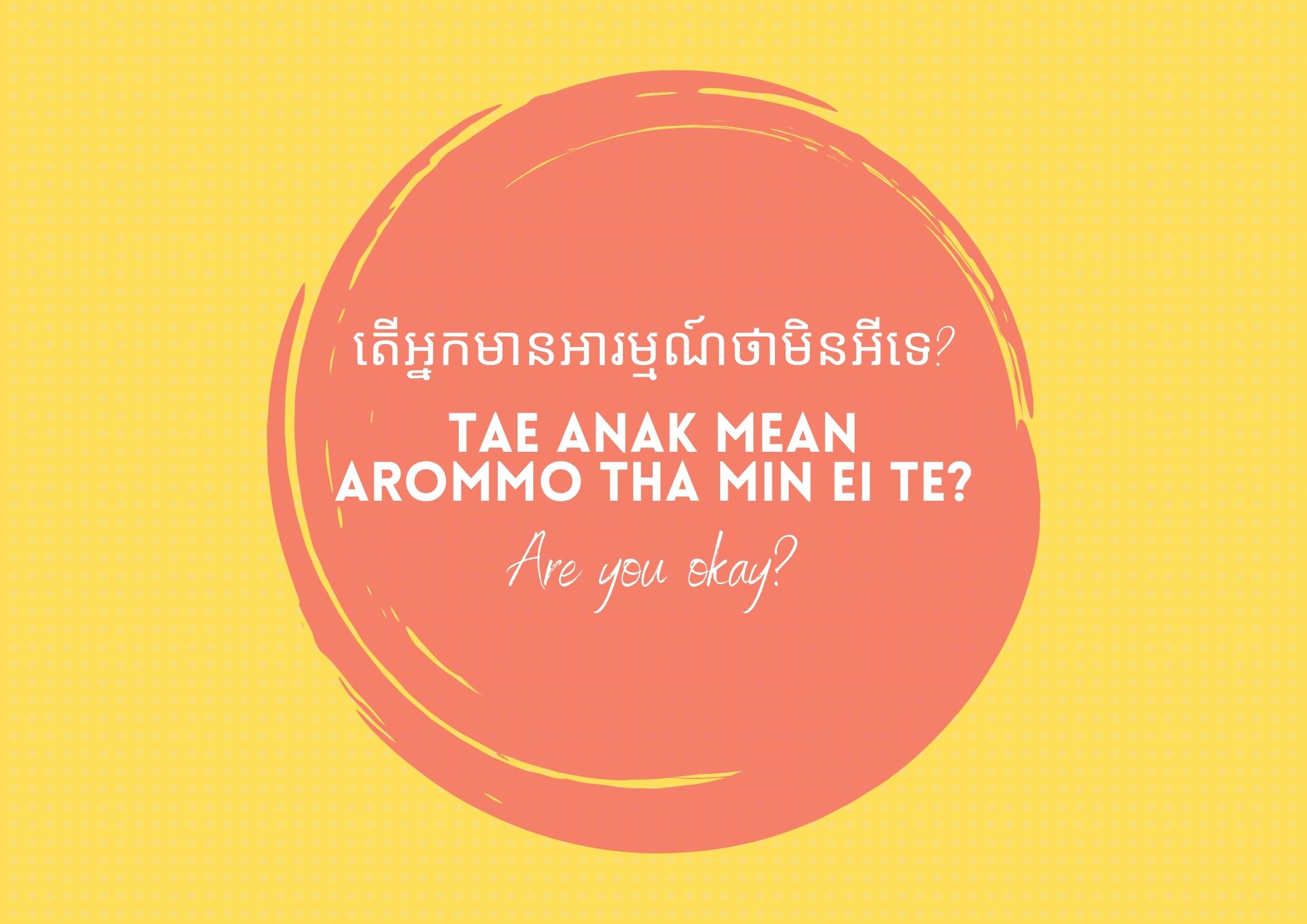
There will be instances when you can notice that someone is not doing or feeling well that day. Asking them how do they feel might lighten up what they feel. But if they don’t want to tell you how they feel, know how to respect. Tae avei damnaerkar la te? (តើអ្វីៗដំណើរការល្អទេ?) means “Are you okay?” in English.
How To Respond To ‘How Are You?’ In Khmer?
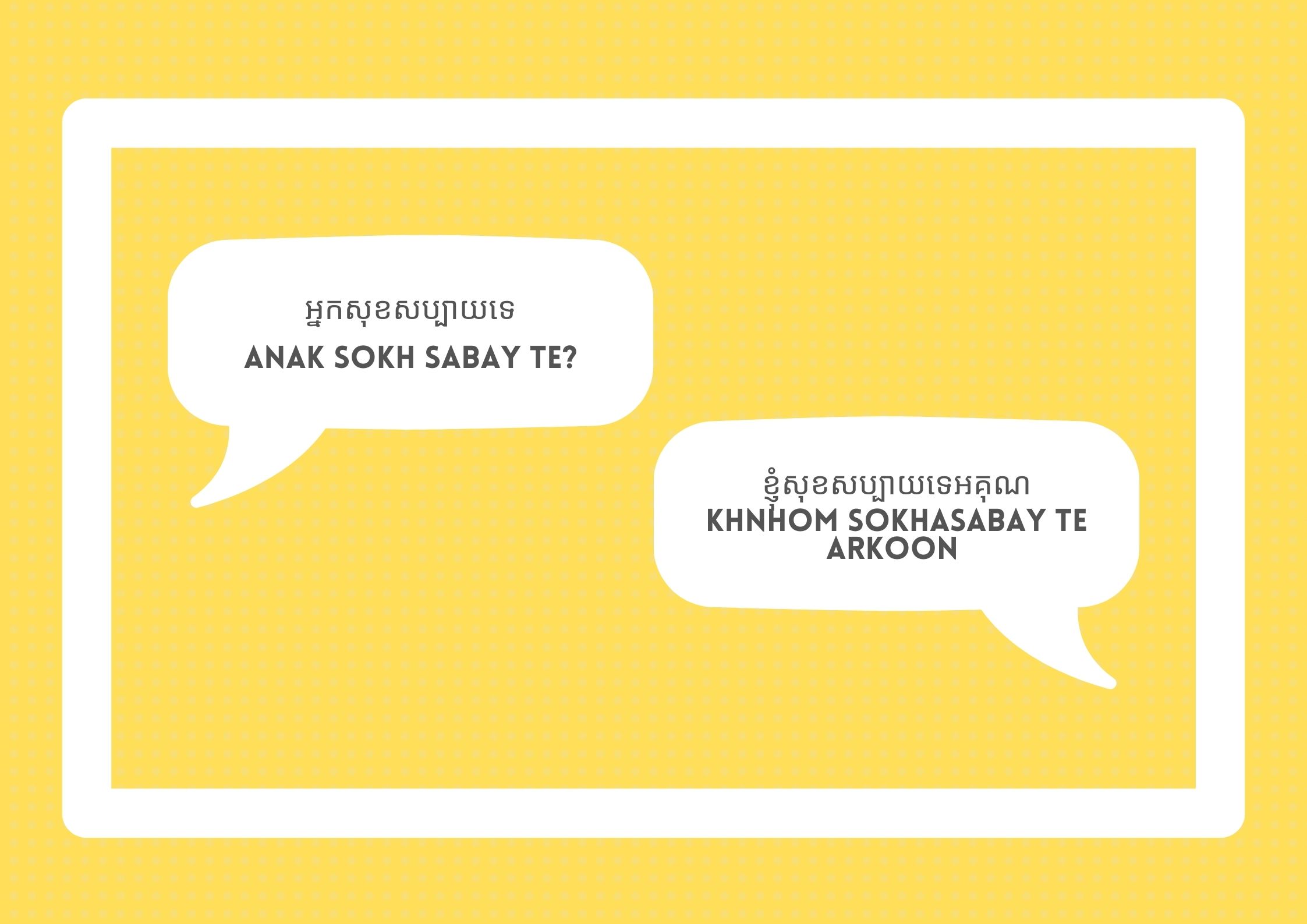
Knowing how to respond and say thank you for checking you in is a sign of respect. But how are you going to respond if you do not know how to speak in Khmer? If you were asked “How are you?”, you should also know how to respond. Use the following phrases to respond:
| Khmer | Pronunciation | Translation |
| ខ្ញុំសុខសប្បាយទេអរគុណ | Khnhom-Sok-Sabay-Te-Arkon | I’m fine, thank you. |
| ចា៎/បាទ ខ្ញុំសុខសប្បាយ អរគុណ | Chah (female)/Baht (male)-Khnhom-Sok-Sabay Arkon | Fine, thank you. |
| ខ្ញុំសប្បាយចិត្តណាស់ | Khnhom-Rikreay-Nas | I’m very happy. |
| ខ្ញុំរីករាយណាស់ថ្ងៃនេះ | Khnhom-Rikreay-Nas-Thngai-Nis | I have a great day. |
| ខ្ញុំមានសំណាងណាស់ | Khnhom-Mean-Samnang-Nas | I am blessed. |
| គ្មានអ្វីច្រើនទេ | Kmean-Avei-Chraeun-Te | Nothing much. |
| ខ្ញុំមិនសូវសុខទេ | Khnhom-Min-Sov-Sok-Te | I’m not good. |
| ខ្ញុំពិតជាអស់កម្លាំងណាស់ | Khnhom-Pit-Chea-Ahs-Kamlang-Nas | I’m really tired. |
| ខ្ញុំពិបាកចិត្តណាស់ | Khnhom-Pibak-Chet-Nas | I’m very sad. |
| ខ្ញុំឈឺហើយ | Khnhom-Chueu-Haeuy | I’m sick. |
| អរគុណ | Arkon | Thank you |
| ចា៎ បាទ | Chah (female) Baht (male) | Yes |
| អត់ទេ | Ort-Teh | No |
Learning how to say How are you in Khmer is part of the basic words and phrases that you should learn when visiting Cambodia. It is a great way to build connections with people and making your trip unforgettable and more meaningful. There are a lot more Khmer phrases that you must learn to communicate with the locals. Aside from this, you must also learn how the words are pronounced. So do not stop learning this language. You have a lot more to discover and learn.
Why Should We Ask How Are You?
- Shows politeness and respect.
- Builds a sense of togetherness.
- Provides the feeling of being understood and valued.
- Help make new connections.
- Helps how to help someone in need.
Khmer: The Official Language Spoken In Cambodia
Before we learn how to say ‘How are you?’ in Khmer, let us first have a brief introduction about Khmer, the Cambodian language. Khmer is the official language spoken by 13 million people in Cambodia. It is influenced by Sanskrit and Pali. The similarities of Khmer with Thai, Lao, and Vietnamese language is due to geographical proximity and cultural connection.
Although some of the locals know how to speak English, learning words and phrases in Khmer will really help you in your entire Cambodia trip. Aside from being essential, it is also a sign of being polite to the local people and their culture. So, if you are planning to visit Cambodia, bring with you some essential Khmer words and phrases.
Want To Learn New Words And Phrases In Khmer?
Prepare yourself for your future trip to Cambodia by learning the Khmer language using Ling App. This will come in handy when you are traveling across the country, riding in a tuk-tuk, asking for directions, ordering delicious food, asking for the bill, greeting somebody, and many more.
Through Ling App, you can have interactive language learning experiences. You will also learn how a certain word is pronounced. Most of all, you will be able to appreciate the culture of the country where it is being spoken. Lack of time and budget for classes will no longer be a problem or excuse in learning new languages. So, unleash your potentials and start learning Khmer now!
